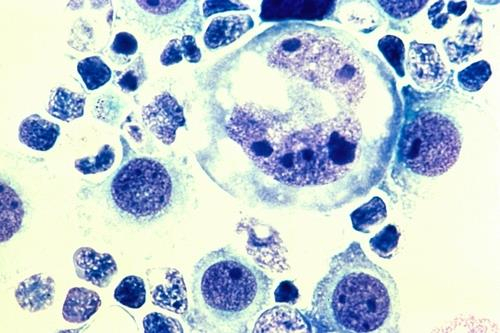Cancer cells hide in a slow dividing mode but reappear when treatment is stopped.
Mammalian “fetal survival” strategy metaphor… Suggest a treatment strategy to prevent cancer recurrence
View
Cancer cell resistance to chemotherapy is a long-standing headache for scientists. Research shows that this can be an important clue in suppressing treatment resistance to cancer cells.
The important point is that when a hostile environment such as chemotherapy is created, cancer cells become a kind of dormant state that severely suppresses self-division and energy consumption, neutralizing the therapeutic effect. In this case, cancer cells behave like whole organisms, adopting survival strategies that have been maintained in many mammals during evolution.
This is the first time cancer cells have been proven in medicine to evade chemotherapy using a mammalian evolution program.
Scientists have also proposed a therapeutic strategy to prevent cancer recurrence by aggressively targeting cancer cells hidden in this slow dividing state. The study was conducted by scientists at the Princess Margaret Cancer Center in Toronto, Canada, and a related research paper was published in Cell on the 7th (local time).
By administering chemotherapy to isolated human colorectal cancer cells in a Petri dish, the researchers stopped growing and triggered a slow amputation condition that used little nutrients. As long as chemotherapy is used, cancer cells remain in this condition. Cancer cells have switched to low energy mode using a “embryonic survival program” conserved in more than 100 mammals.
This program is a survival strategy that safely protects embryos in the body when faced with extreme environments such as high, low, and low food. Then, when the external environment improves, the dysplasia returns to normal, and the female offspring have no problems.
Cancer Center Dr. Catherine O’Brien, an assistant professor of surgery at the University of Toronto School of Medicine, said, “Cancerous cells seem to intercept the survival strategies of mammals that humans do not have in the process of evolution.” He explained that it would be a slow partition.

View
Researchers have found that cancer cells resulting from slow division with chemotherapy drugs have very similar gene expression characteristics compared to mouse embryos with delayed growth. Both slow-dividing cancer cells and mouse embryos that stopped growing required the activation of a cellular process called autophagy. Cells that are deficient in nutrients are called autophagy in order to survive by breaking down proteins or other cellular components on their own.
The research team confirmed that cancer cells cannot survive if they suppress autophagy with a small molecule substance. Because autophagy has ceased, cancer cells that cannot hide in a slow-dividing cache cannot escape chemotherapy. “When cancer cells are hidden by slow division, when genetic mutations do not occur and are still subject to chemotherapy, we have to focus on cancer cells,” said Dr. O’Brien.
Reporter Park Na [email protected]
